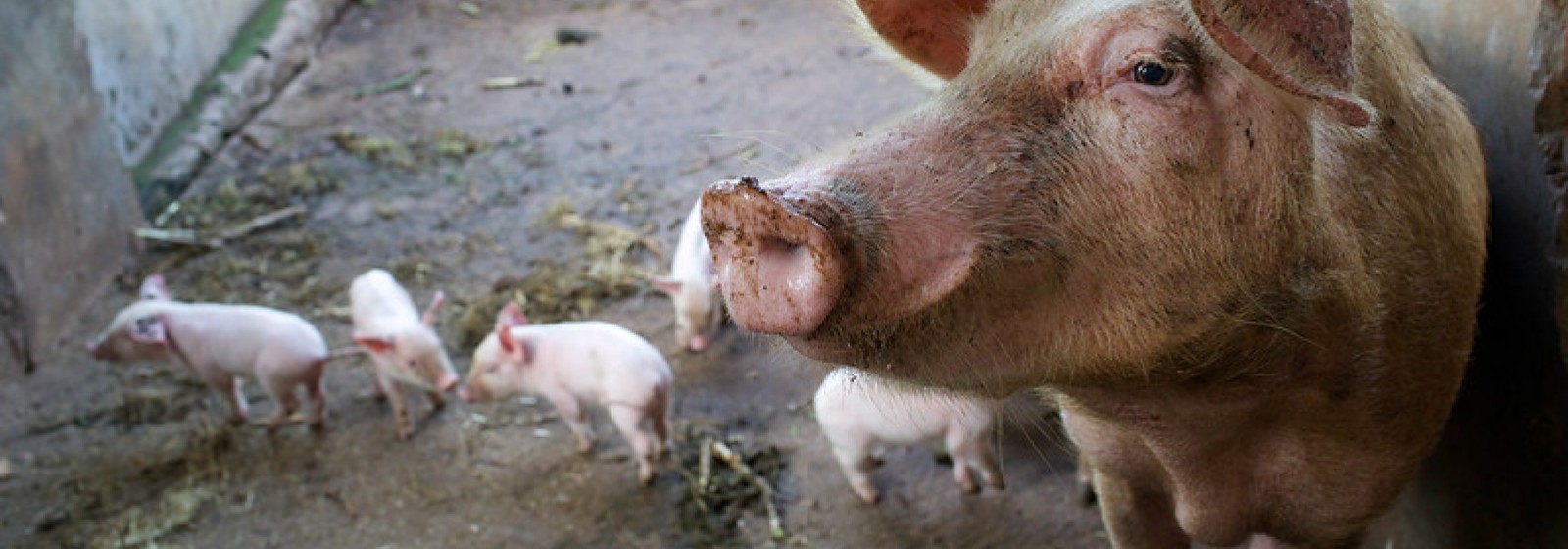Blog post
An assessment by the International Livestock Research Institute (ILRI) and its partners has emphasized the need to establish effective biosecurity measures to prevent the entry and spread of African swine fever (ASF) in Ugandan pig farms.
The evaluation documented critical areas for intervention and pilot tested practical biosecurity measures for controlling ASF along the pig value chains.
This brief highlights the following key recommendations:
- Providing basic information about ASF to key value chain actors and stakeholders, most importantly farmers, traders, and butchers;
- Strengthening of grassroots‐level surveillance and reporting systems to feed in the national structure;
- Building the capacity of the disease reporting structure from centre to local governments to ensure veterinary services are answerable to a direct chain of command in the event of a disease outbreak;
- Enhancing inspection of live pigs during transportation and strengthening public health and meat hygiene; and
- Encouraging the uptake of biosecurity measure by farmers through the promotion of business models that improve income from piggery.
These recommendations are also applicable to managing other diseases that are affecting the livestock, trade and public health in the country.
